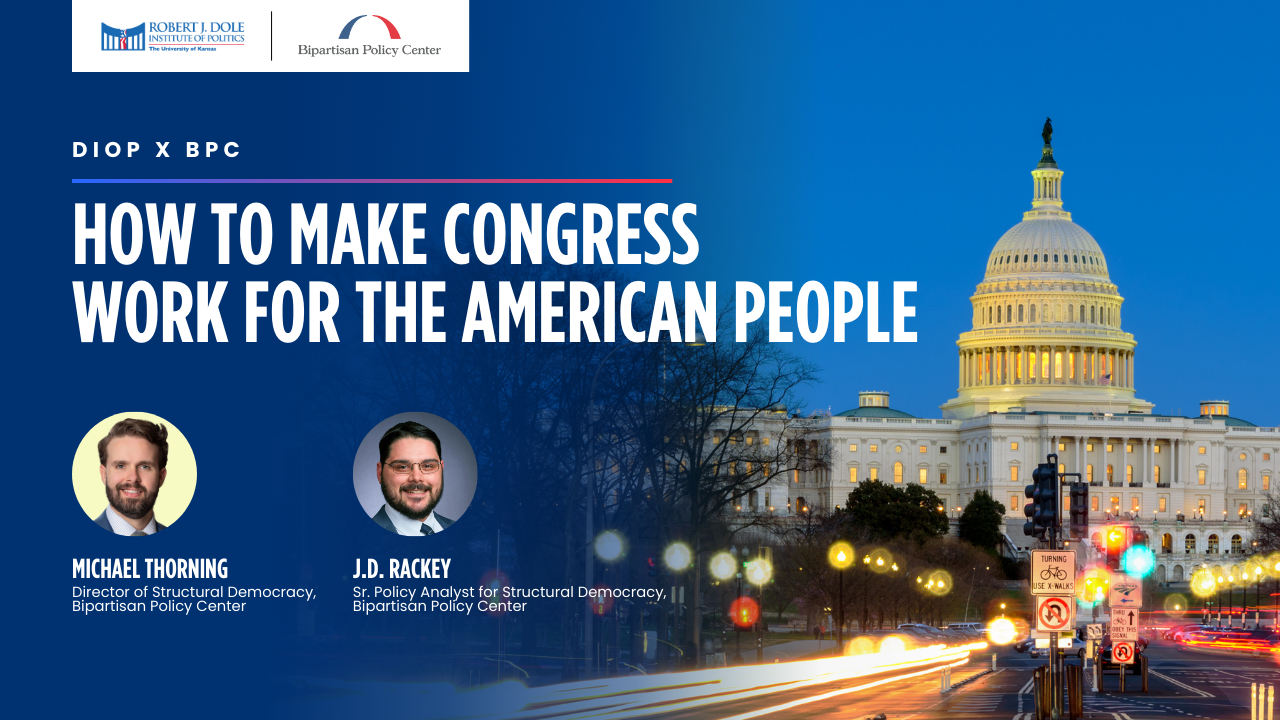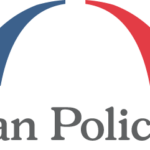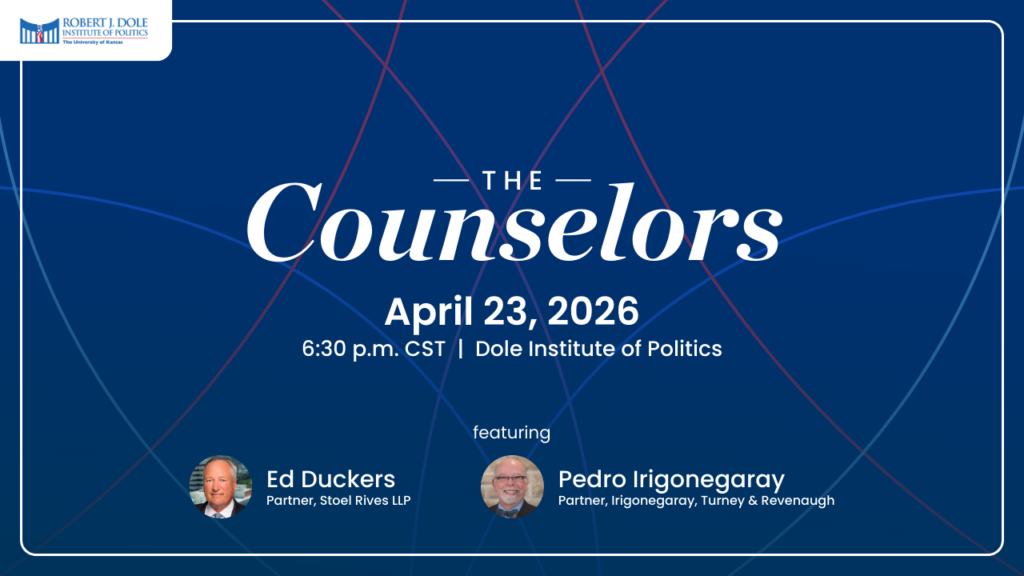
- This event has passed.
How to Make Congress Work for the American People
October 29, 2024 @ 10:00 am - 11:15 am

Public frustration with Congress has been the status quo since the institution’s very first days. Many point to constant gridlock and high levels of partisanship as the main problems that have led to Congress’s recent decrepitude. While partisanship and gridlock does impact Congress’s ability to be a responsive and representative body, an often underdiscussed problem is that of the institution’s internal capacity. What resources does Congress need to effectively, efficiently, and transparently meet the needs of the American people? What incentives drive member behavior and how can the day-to-day workflow of the institution be altered to drive more bipartisan policymaking?

This program is presented in partnership with the Bipartisan Policy Center.
Michael Thorning serves as the Director of Structural Democracy at the Bipartisan Policy Center. Prior to BPC, Thorning worked for Senators Jeff Bingaman and Tom Udall where he focused on campaign finance and election reform, Senate rules and congressional reform, and judiciary, civil rights, and civil liberties issues. Thorning has been a fellow of the Center for Congressional and Presidential Studies at American University and is a member of the guest faculty of the University of New Mexico. Thorning earned his B.A. in political science with honors from the University of New Mexico and served as a Fred R. Harris Congressional Intern.
J.D. Rackey is the Senior Policy Analyst for Structural Democracy at the Bipartisan Policy Center. His research focuses on the politics and procedures of the U.S. Congress with an emphasis on congressional capacity and modernization. Rackey previously served as professional staff with the U.S. House of Representatives Select Committee on the Modernization of Congress and he’s a frequent adjunct faculty member at Georgetown University. Rackey earned his Ph.D. in political science from the University of Oklahoma and is a former American Political Science Association Public Service Fellow.
